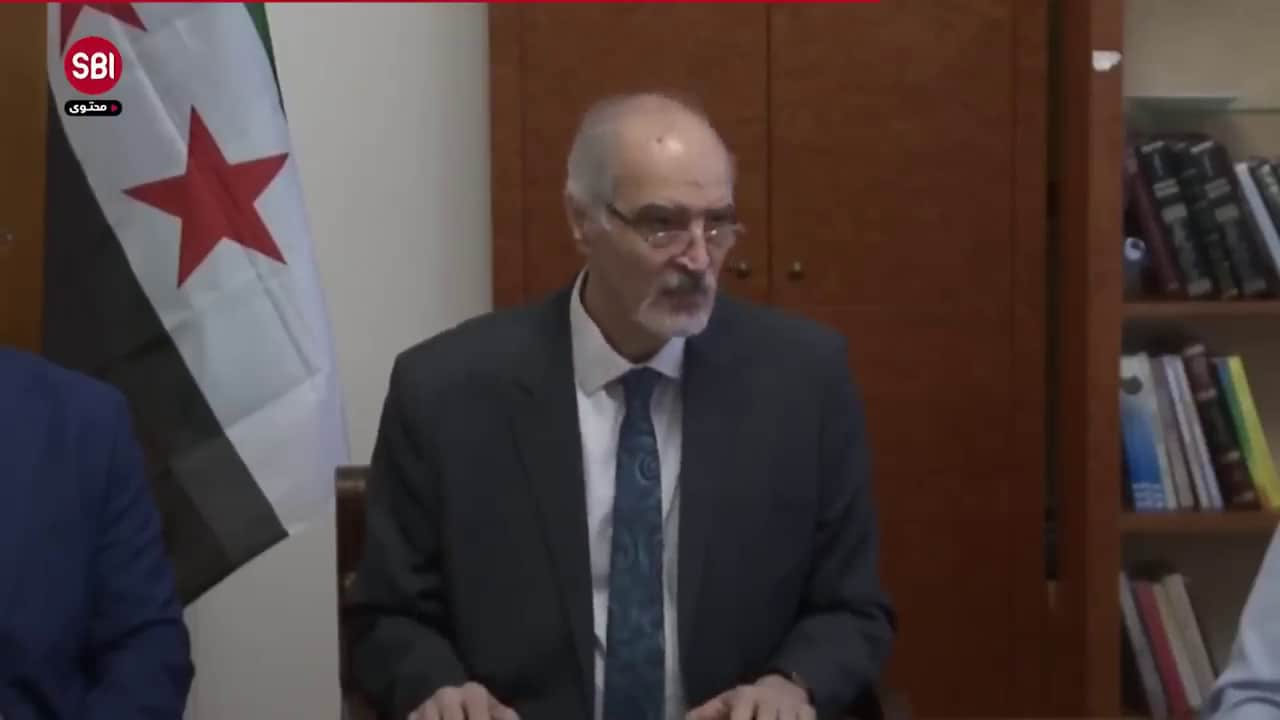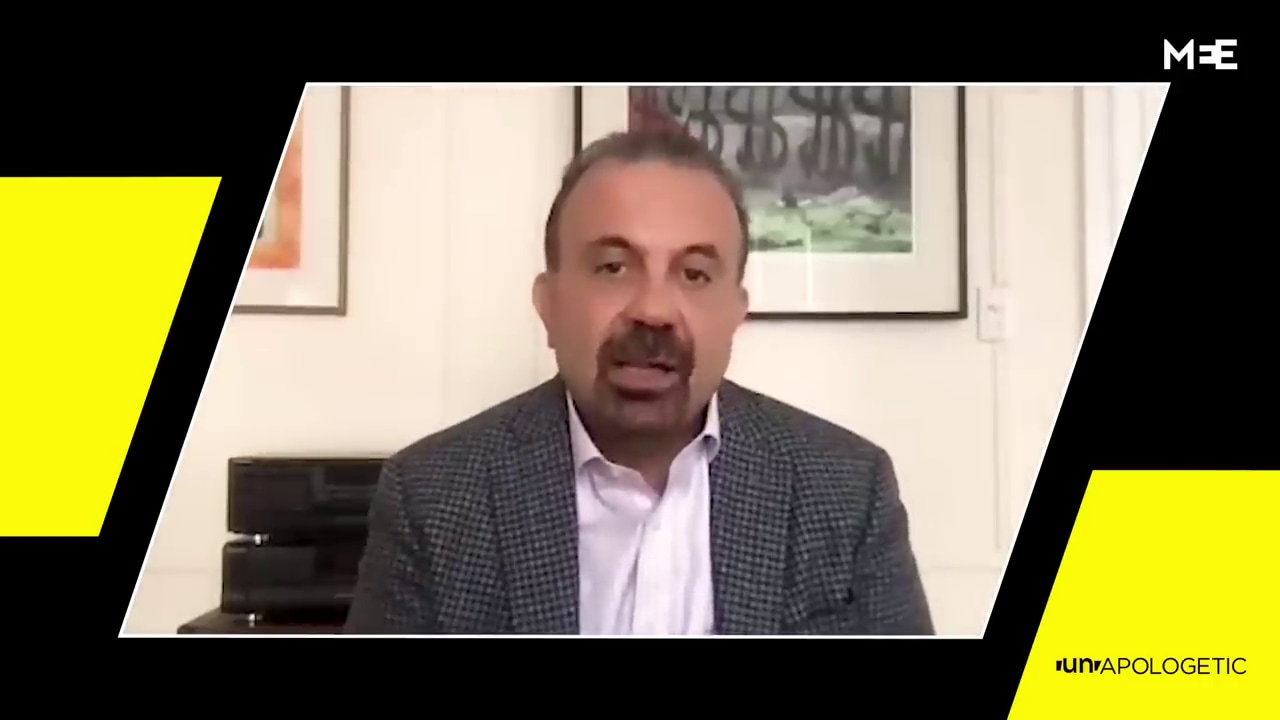
Following are excerpts from two interviews with General Ra'd Majid Al-Hamdani, former commander of the 2nd Corps of the Iraqi Republican Guards, which aired on Al-Baghdadiya TV on February 26 and March 5, 2007.
Interviewer: Before the war began, were you, the commander of the Republican Guards, convinced that the war would break out?
General Ra'd Majid Al-Hamdani: Of course.
Interviewer: Since when?
Ra'd Majid Al-Hamdani: Let me give you a simple example. On June 30, 2002, we held a meeting with the chief commander of the armed forces, President Saddam Hussein, in the presidential palace adjacent to the international airport.
[...]
I proposed to President Saddam Hussein that we employ a strategy of partial use of force.
Interviewer: When the war began, Iraq did not have a single airplane, right?
Ra'd Majid Al-Hamdani: I think there were no more than 23 airplanes.
Interviewer: But they were not used at all?
Ra'd Majid Al-Hamdani: No, because these airplanes all had outdated systems, and so they were buried underground. We have not had a real airforce since the mid-90's.
Interviewer: Since the second Gulf war?
Ra'd Majid Al-Hamdani: Of course.
[...]
Interviewer: Let's return to your conversation with Saddam Hussein.
Ra'd Majid Al-Hamdani: I asked that we employ a strategy of partial use of force, which is similar to guerilla warfare. I said that all our many armored vehicles could not make any difference, because these forces need air cover by air defense weapons that we did not have. The man allowed me the opportunity to explain this for 45 minutes.
Interviewer: Did he listen?
Ra'd Majid Al-Hamdani: Yes, he listened closely. Ultimately, however, the Defense Ministry of some Republican Guards commanders did not agree to use this new strategy.
Interviewer: These ideas of yours - were they accepted by those present or by Saddam, or were they rejected?
Ra'd Majid Al-Hamdani: The truth is that since 2001, after the events of 9/11, in fact, the next day... There was a ceremony at the Rashid base of the 3rd division of the special forces. There was a meeting of a group of officers, in which I said that we would be the target that would pay the price of 9/11.
Interviewer: You said this in front of Saddam?
Ra'd Majid Al-Hamdani: No, to a group of the corps officers. Immediately after 2001, we began preparing the training the corps, according to the strategy of partial use of force.
[...]
Interviewer: When exactly did you know for sure that there would be a war?
Ra'd Majid Al-Hamdani: Let me give you another example. On August 21, 2002, I was visited early in the morning, at about 7:30, by the supervisor of the Republican Guards [Qussay Hussein].
Interviewer: He visited you at the corps headquarters?
Ra'd Majid Al-Hamdani: Yes. It was located south of Baghdad. He was not calm. He was not himself. He wanted to meet me in private, and not with all the commanders, as is customary. He said: "I have some questions, and I want you to answer honestly. I know you are an honest man." The first question he asked me was if there was going to be a war or not. I answered that there would definitely be a war. I told him that even though I did not have sufficient information...
Interviewer: There was already a build-up of [American] forces in the Gulf?
Ra'd Majid Al-Hamdani: No, it had only begun... The build-up had begun, and there was explicit American and British talk about a war.
Interviewer: Of course, [Qussay] came on behalf of Saddam Hussein, right?
Ra'd Majid Al-Hamdani: Possibly. He asked me if there was going to be a war, and I said that there definitely would be, because there is a fundamental clash between American and Iraqi strategies. If this clash is not resolved by the higher ranks of Iraqi strategy, there would definitely be a war. Then, he asked me another question: "How long do you expect the Republican Guards to hold out in this war?"
[...]
I told him that if we maintained the old strategy, which was successful in the war with Iran, It would definitely prove to be ineffective today. I submitted several studies about this in the past, four or five years ago, or more. But I told him that if we changed to a strategy of partial use of force, we could hope to hold out for six to eight months.
Interviewer: Are you convinced of this?
Ra'd Majid Al-Hamdani: Yes, I am convinced that if...
Interviewer: How could a fatigued army that was worn out by 12 years of siege hold out for eight months against the greatest military force in the world?
Ra'd Majid Al-Hamdani: If we had changed to a strategy of guerilla warfare...
Interviewer: You just said there was no air cover...
Ra'd Majid Al-Hamdani: That's why I told him that if we employed a strategy of partial use of force, we might be able to continue for six to eight months, but if we used large military formations, it would be a matter of days. There was no doubt about it. I said that our armored vehicles could be destroyed - and, indeed, they were destroyed, before we saw even a single enemy tank.
[...]
Let me give you another example. In 1994, I commanded the Republican Guards Al-Madina Al-Munawara division. At the time, the leadership thought we should regain Kuwait. I was the most veteran division commander...
Interviewer: In 1994?! Regaining Kuwait?!
Ra'd Majid Al-Hamdani: In September, 1994.
Interviewer: Who brought this up?
Ra'd Majid Al-Hamdani: The supervisor of the Republican Guards [Qussay] presented the position of President Saddam Hussein, the chief commander of the armed forces. This was at the Republican Guards headquarters, in the presence of the commander of the Republican Guards, and the commanders of the six corps we had then.
Interviewer: He met with the corps commanders?
Ra'd Majid Al-Hamdani: Yes. He asked us: "What military capabilities are available to the Republican Guards to carry out this mission?" I was the first commander to talk...
Interviewer: Was this political madness, or what?
Ra'd Majid Al-Hamdani: I think the siege took its toll and was weakening the Iraqi people, and apparently this was one of the options.
[...]
Three days later, President Saddam Hussein summoned me. He asked me about this, and I answered him in all honesty: "We are unable to carry out this mission."
Interviewer: Didn't you ask him why he wanted to invade Kuwait after all that had happened?
Ra'd Majid Al-Hamdani: It was not my place to ask this, and I would never step out of line.
[...]
I believe 90% of our armored vehicles were destroyed during the war.
Interviewer: How long did it take?
Ra'd Majid Al-Hamdani: From the beginning of the bombing, until the last battle of the corps on April 4, at Al-Yusufiya.
Interviewer: 90% of the armored fighting vehiclies?
Ra'd Majid Al-Hamdani: Yes, they were destroyed.
[...]
Interviewer: When was your last meeting with either the commander or the supervisor of the Republican Guards?
Ra'd Majid Al-Hamdani: On April 2...
[...]
We had one cell phone, and I was summoned to Baghdad.
[...]
I met there with the supervisor of the Republican Guards, with the defense minister, the chief-of-staff of the Al-Quds Army, General Iyad Al-Rawi, [chief-of-staff of the Republican Guards] General Seif, chief-of-staff of the army General Ibrahim, and the commander of the 1st corps of the Republican Guards, General Majid. When I joined the meeting, they said that there was a message from the president, to be delivered by the defense minister. He said that it was the leader's opinion that all that had happened until that day, April 2, was a great strategic military deception by the Americans, and that their main force would come from the west, along the H3 road, and that it would target the area north of Ramadi and south of Al-Tharthar Lake. From there, the main American force would descend towards Baghdad...
Interviewer: What was this information based on?
Ra'd Majid Al-Hamdani: There may have been an illusion, because the Americans...
Interviewer: Do you think this information was leaked to the leaders?
Ra'd Majid Al-Hamdani: No, I think there was a mistaken analysis of the situation.
Interviewer: By whom?
Ra'd Majid Al-Hamdani: By the top leadership, of course.
Interviewer: The military leadership?
Ra'd Majid Al-Hamdani: Both the military and political leaderships.
[...]
Therefore, I was told I could keep two divisions - the Al-Madina Al-Munawara division and the Nebuchadnezzar division - and that all the other units should retreat to Baghdad, and defend it with barricades of mines and barbed wire. This really upset me, and I said to the minister: "Sir, allow me to clarify the situation for you." He replied: "I don't need any clarification, because I am only the messenger, delivering the order of the president."[...]
Interviewer: Where was Saddam Hussein during the war? Was he in Baghdad? Did he move from one place to another? Was he in the operations headquarters of the chief-of-staff?
Ra'd Majid Al-Hamdani: According to my information, he was in Baghdad, and would come to the operations rooms of the Republican Guards and the army. He moved from one place to another in this way. One of the brothers told me that on April 7, he raised his fist to show that victory was ours. This was on April 7...
Interviewer: While the Americans were...
Ra'd Majid Al-Hamdani: Inside Baghdad.
Interviewer: You met with him and knew what he thought. How could the chief commander of the armed forces... Let's set politics aside – he was a military commander as well, so how could he say those things?
Ra'd Majid Al-Hamdani: Let me quote something he said once. Whether I agreed with him at the time or not is another matter. He said: "Victory will be ours, we will definitely win, because we are the only army in the world that still fights for the sake of Allah, and Allah will not abandon this army until it wins, and I am telling you that the Americans will reach a desert near Baghdad, and there we will bring America to its knees. Then, I will send you to liberate Palestine. The reason Allah will help us bring America to its knees..."
Interviewer: Did you hear this from him?
Ra'd Majid Al-Hamdani: I heard it myself from President Saddam Hussein.
[...]
Interviewer: But what about the facts? Did anyone ask him what the grounds were for such a victory?
Ra'd Majid Al-Hamdani: In our private meeting in 1994, which I mentioned earlier, I said to him... He was tired of hearing the facts that were presented to him in this way. He said to me: "Look, you think one plus one equals two. But for me, it could equal ten, because I have a mission."
[...]
Interviewer: Who should be held accountable for the military defeat in the war? The general comman? Saddam Hussein? Those around him, his advisors, or who exactly? Please rank their level of accountability.
Ra'd Majid Al-Hamdani: Obviously, those who make the strategic decisions bear the main responsibility, and from there the accountability goes down. I certainly cannot deny that I bear some of the responsibility. We, the soldiers – Allah decreed that we would fight at a very critical moment, in which Iraq was lost. The hardest thing is to feel that you, as a commander, were defeated in a war, in which your country was lost. Obviously, this is painful to you, and you bemoan your fate, wondering why you found yourself in this situation. At this great historic juncture – the fall of Baghdad in 2003 – you were one of the people who were unable to prevent it.
[...]
Interviewer: In a nutshell, how would you sum up what happened?
Ra'd Majid Al-Hamdani: Fate blinded the eyes, and our leadership was not wise enough to avoid this catastrophe.
Interviewer: Could it have been avoided?
Ra'd Majid Al-Hamdani: Of course.














